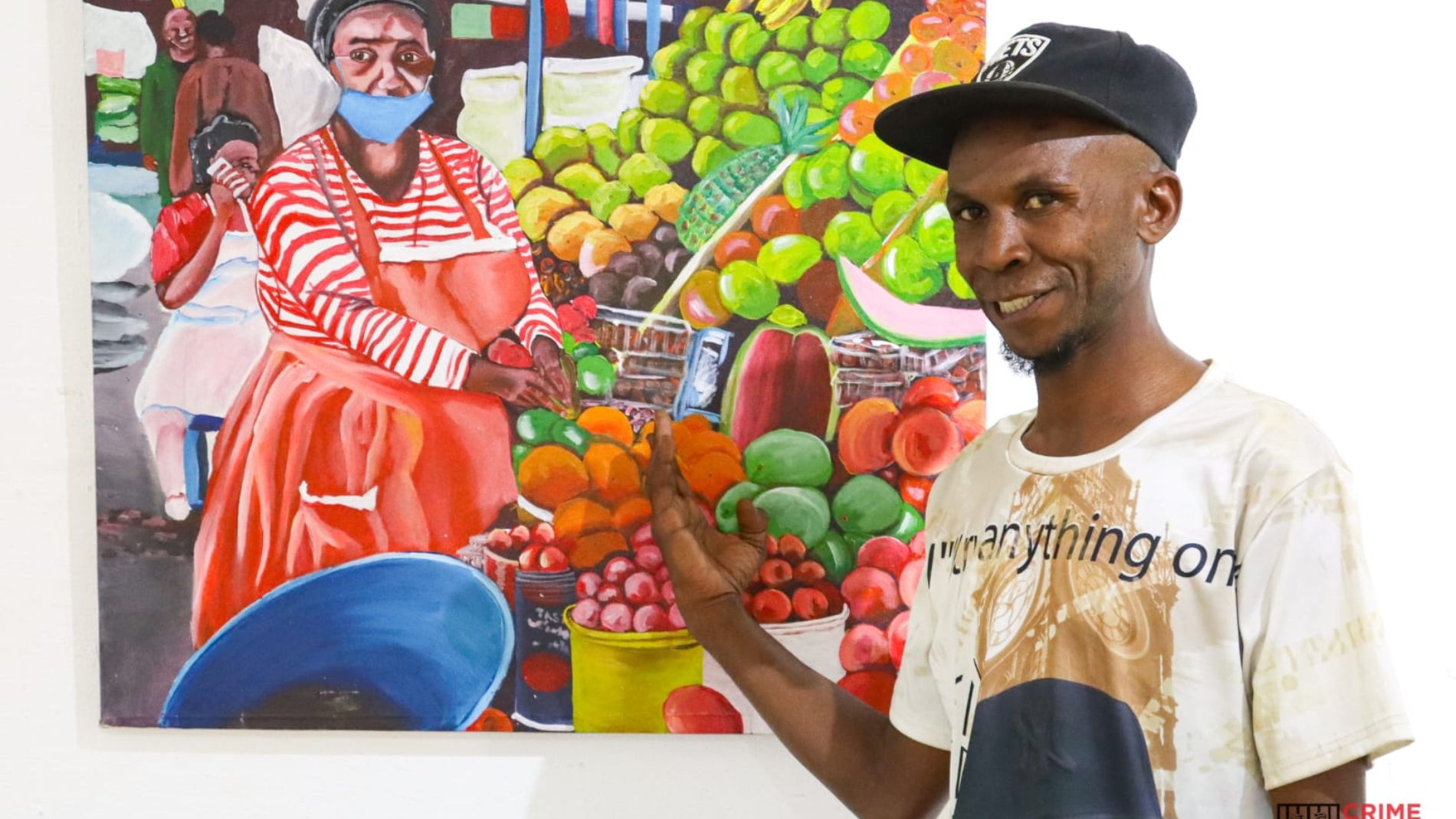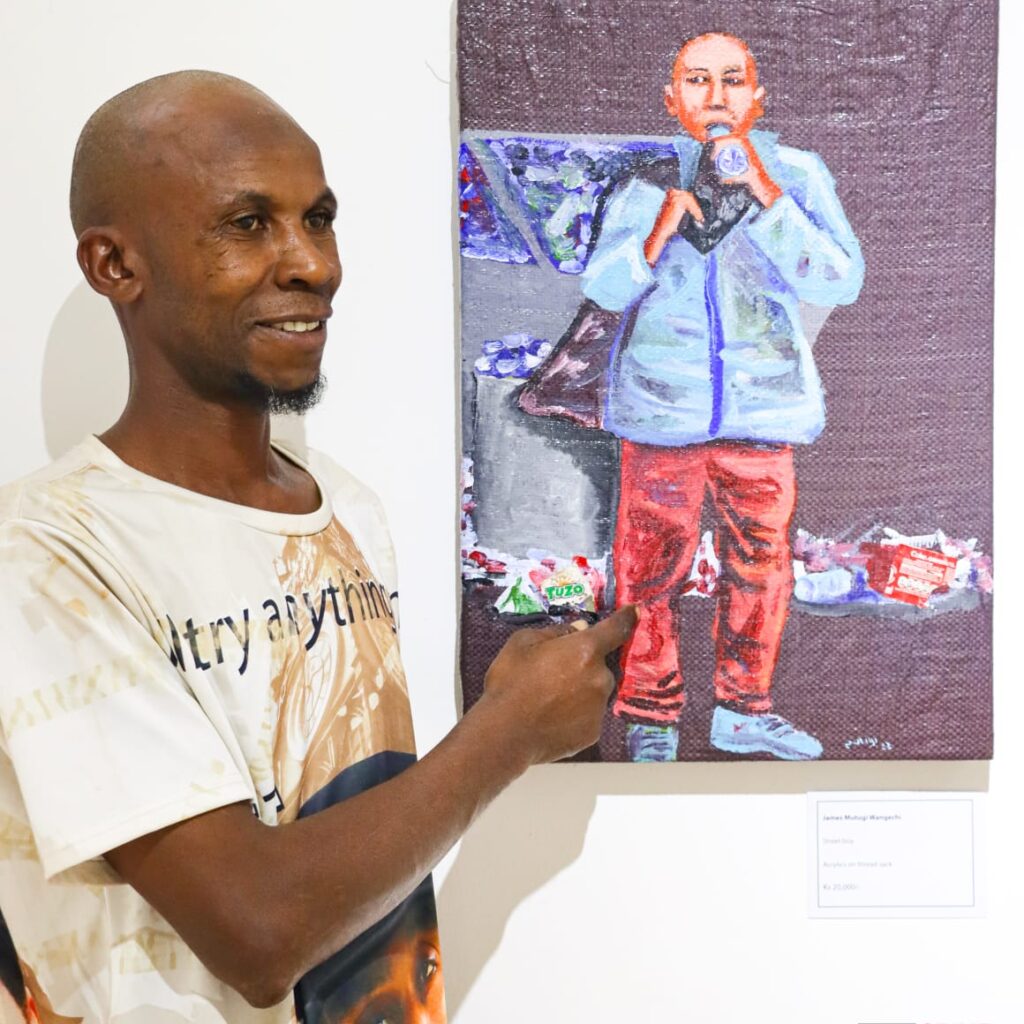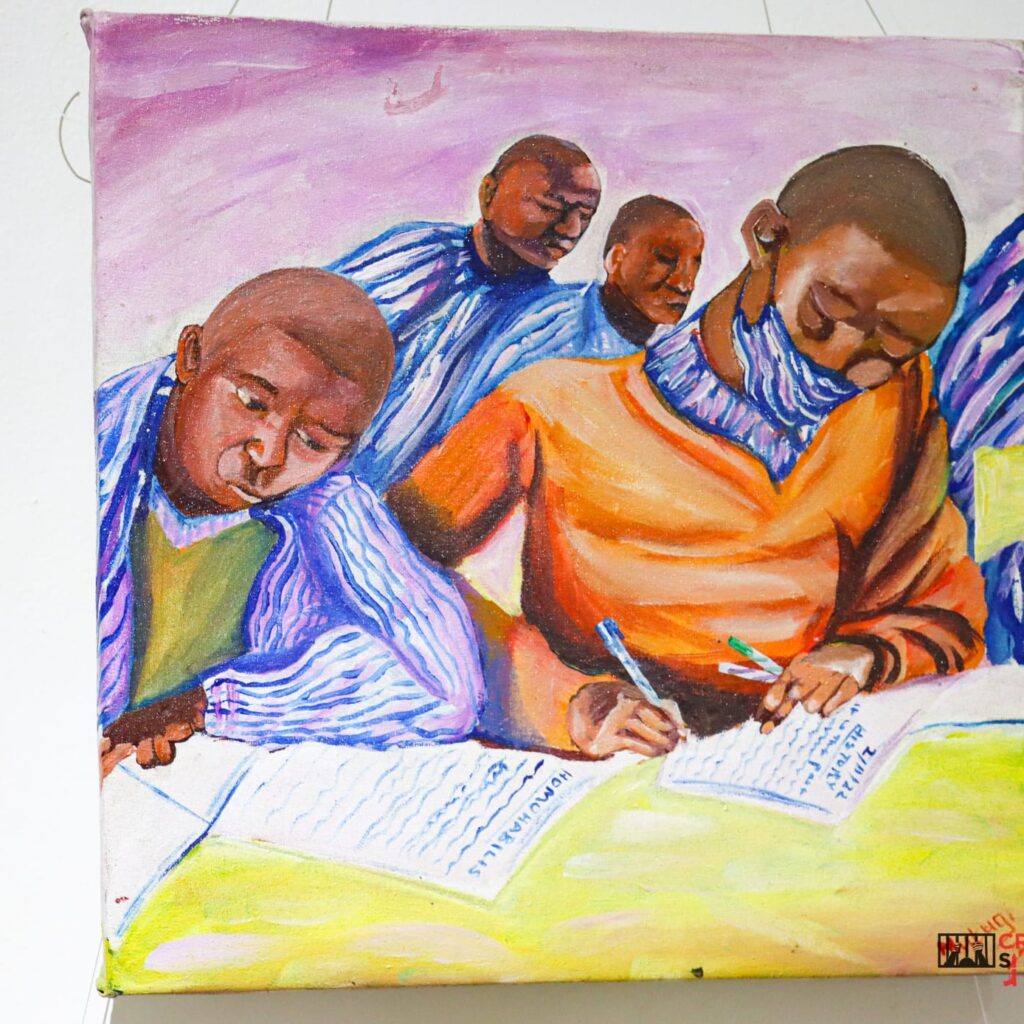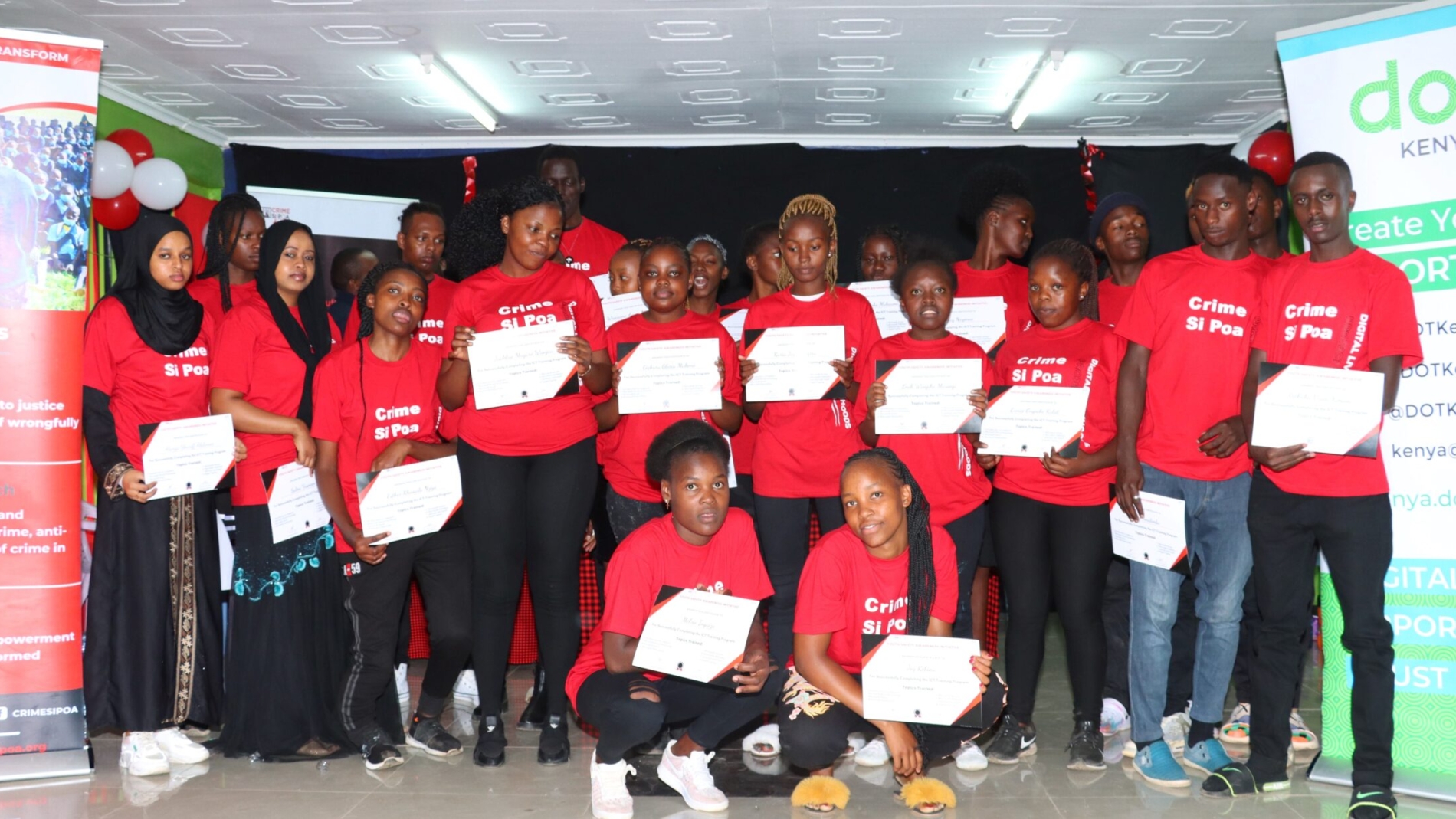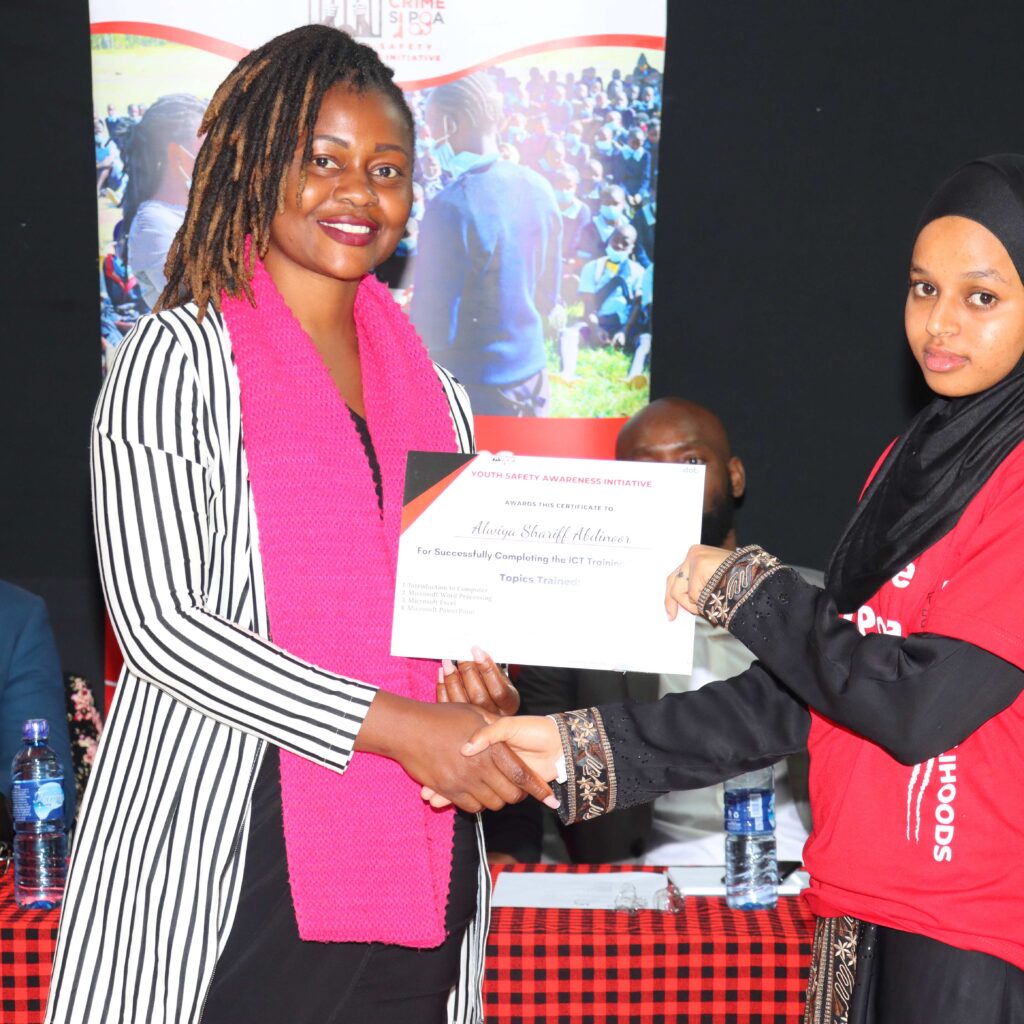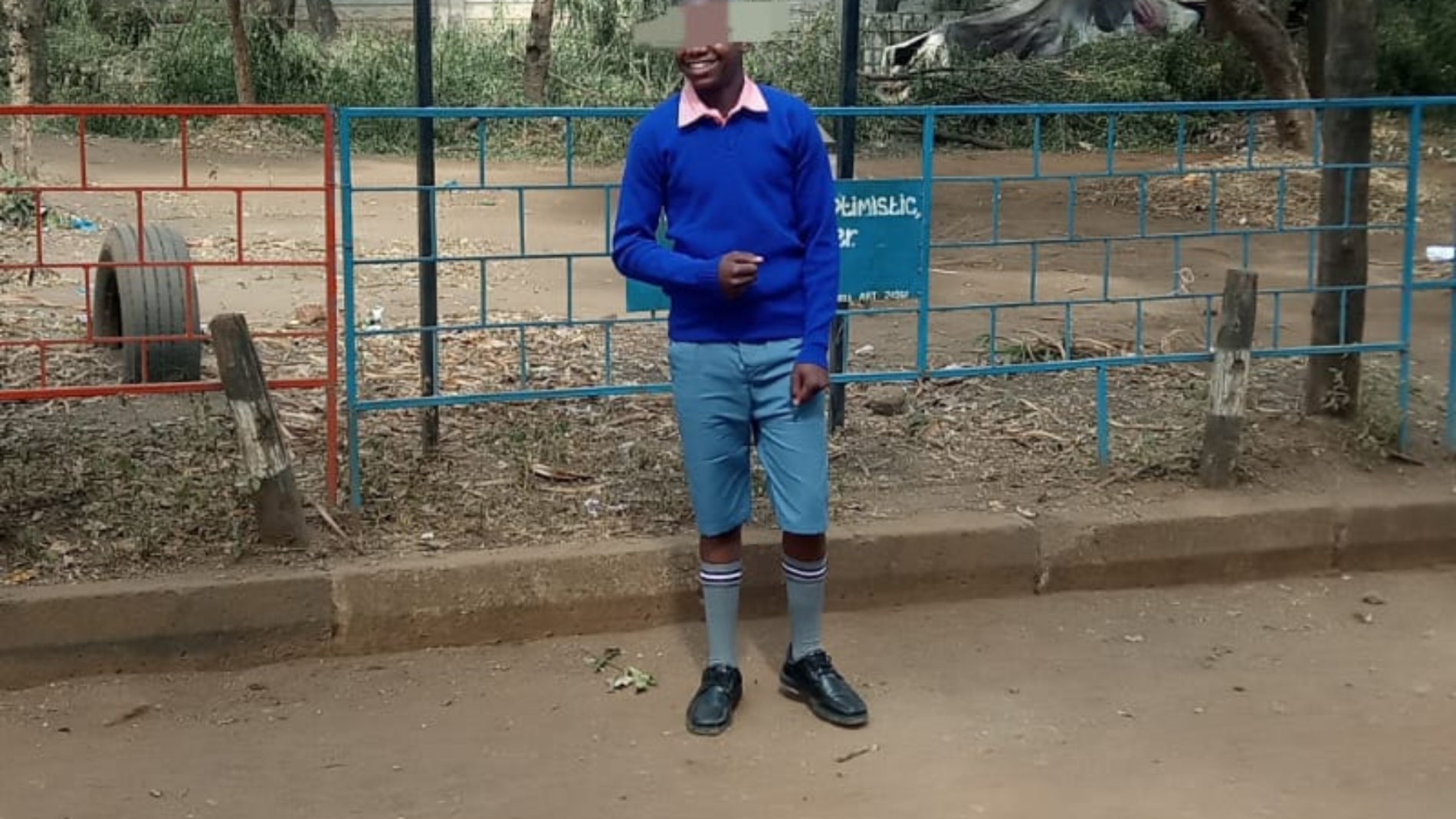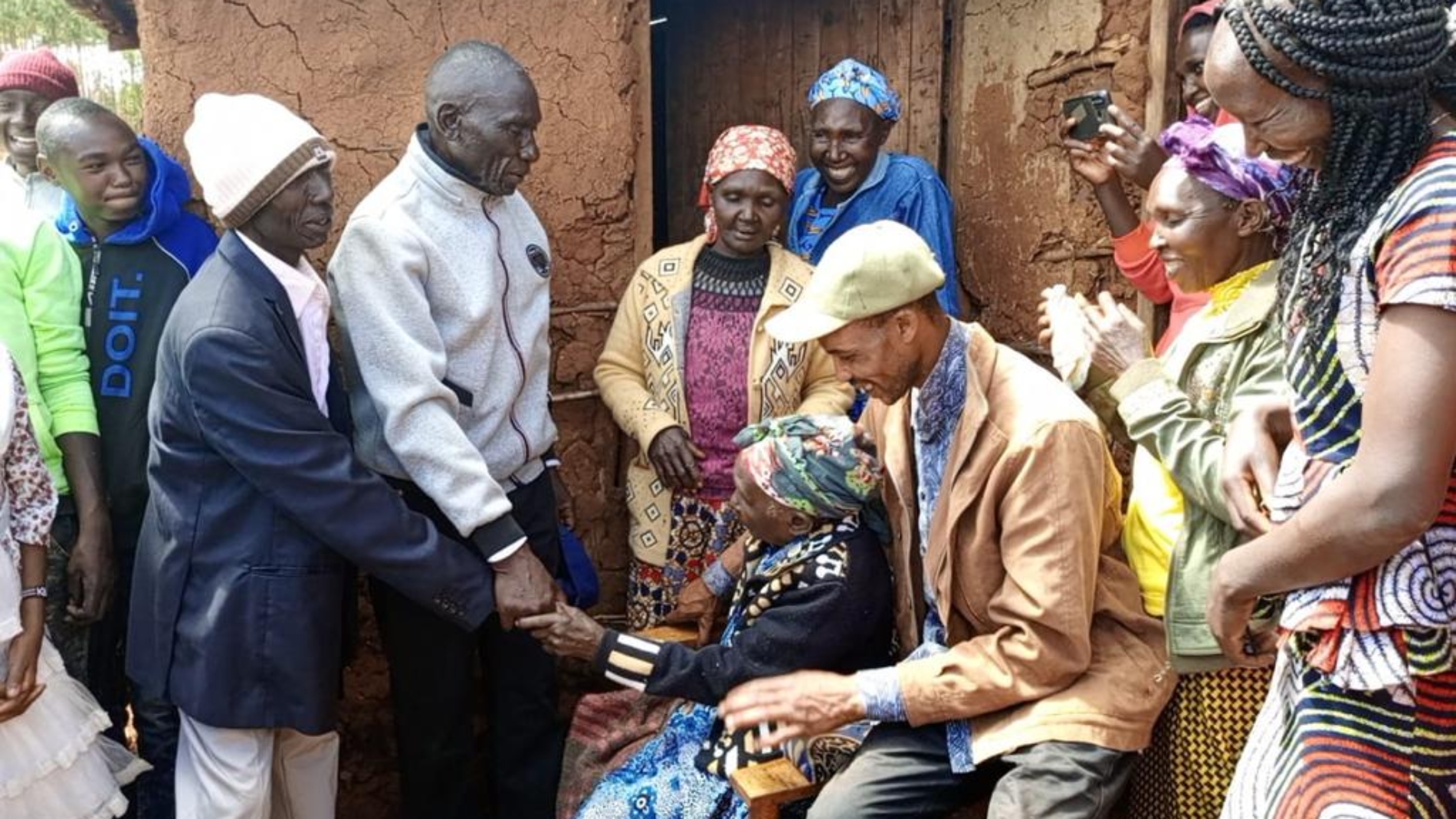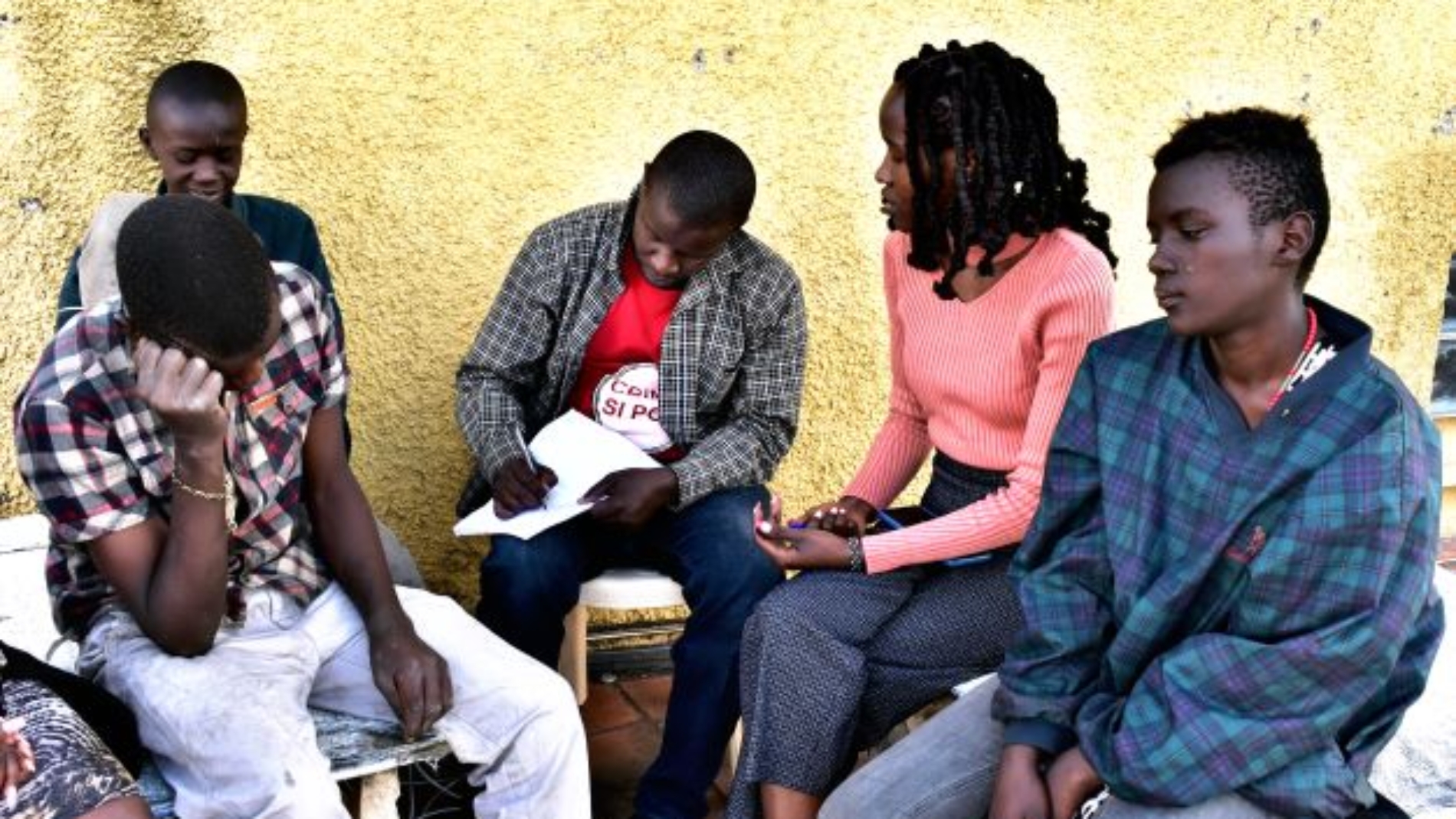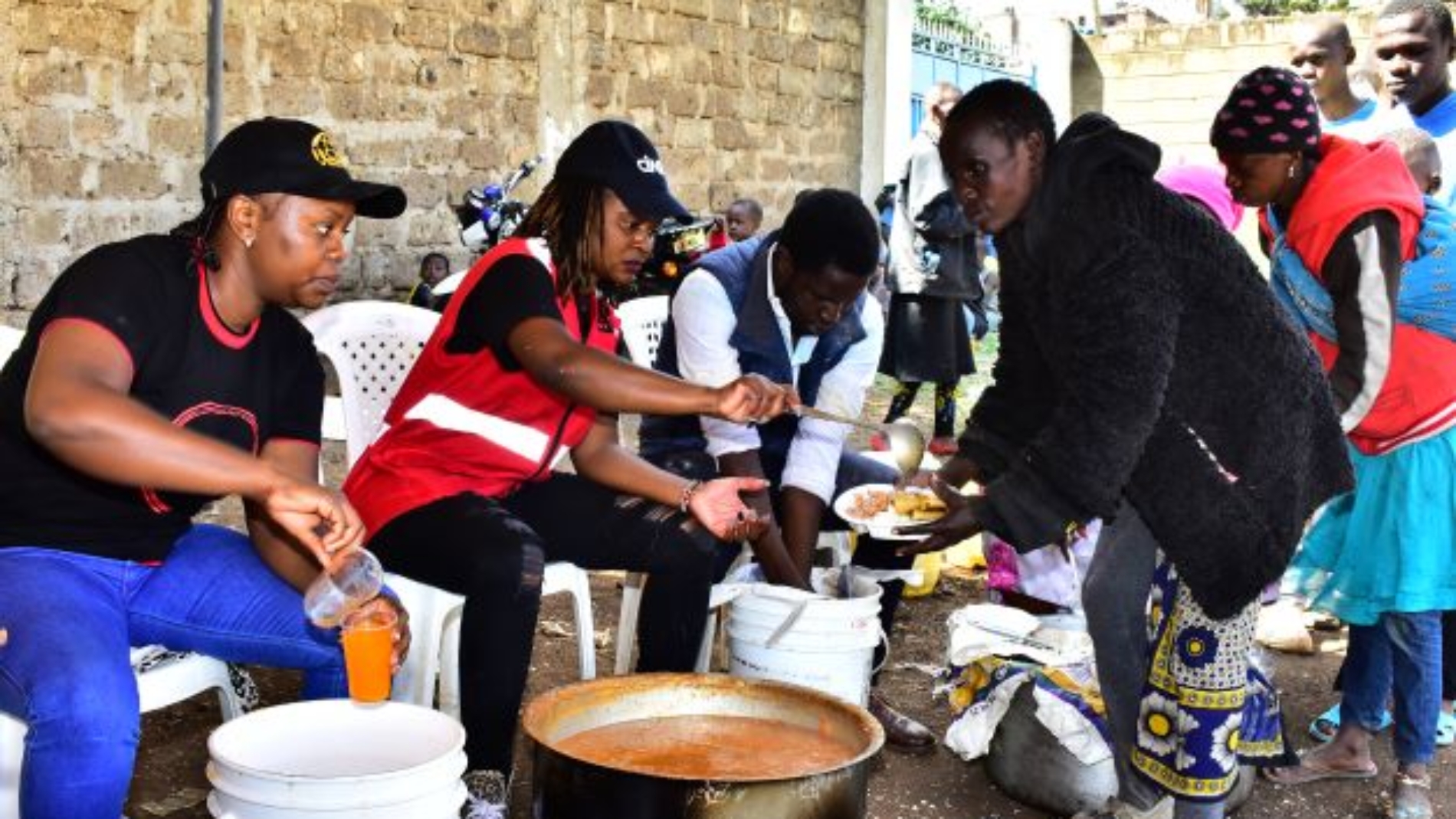“You live in a world where you feel hopeless but then, you get a second chance where your hope is reignited.” These are the words of one man, James Kang’ethe who has been serving a 20 years sentence and is now free.
As we visit Kang’ethe at his humble home at Murindiko village, in the landscape of Kuresoi South in Nakuru County, we find him skillfully maneuvering the sewing machine, with his eyes reflecting both focus and gratitude. He has found purpose for living and now diligently stitches together garments that speak volumes about his resilience and commitment to a brighter future.” This is my new routine, recreating my purpose and making right what I had done wrong after my reintegration, “ Kang’ethe tells our team. In his shop, there are a few pieces of uniform and a few garments brought by locals for sewing.

The man had been found guilty and convicted way back in 2009, with his hopes of being a free man being dashed. “At that time, what had gone through my mind was a life behind bars with no chance of getting my freedom any soon. This bothered me so much but am glad I gained a number of skills while at the prison that have now come in handy to provide me with an opportunity to earn a living,” he adds
Kang’ethe is a beneficiary of Crime Si Poa prisons and reintegration programme, which focuses on the holistic reformation and transformation of persons in conflict with the law for seamless reintegration into the community upon release. Targeted inmates go through psychosocial support for their mental wellness and skills development, which helps give alternative means of income. Named after the Phoenix bird because of its rebirth symbolism, the program empowers children and adults in correctional institutions with a growth mindset and pathways to second chances in life.
Kang’ethe’s brother is excited to be reunited with him. “I am glad that he is back and doing fine and fully equipped with skills that will enable him pick up life and I am so greatful to this programme,” Some of the skills he gained while in prison include metal works, leather works and tailoring
James Karanja, one of the Nyumba Kumi initiative leaders, a strategy for anchoring community policing confirms that Kang’ethe has indeed transformed and is in agreement that rehabilitation and reintegration programme has helped him pick up his life and focus on a bright future.

Alvin Kisara, Crime Si Poa, Nakuru Programs Officer, acknowledges that Kang’ethe’s journey is a true reflection of transformation and the urge to rebuild his life.” We have also brought him soap-making chemicals which we hope will supplement his earning here; the village is quite interior and the residents will be happy to buy the commodity from him as he has brough it closes to them, “says Alvin noting that he had acquired the soap making skill while in prison.
Kang’ethe’s story resonates far beyond the borders of Murinduko. Through his challenges, he proves that a person’s past does not define their potential. “I wouldn’t be afloat right now,” if not for the support. “It gives you encouragement and motivation to get up and get out and achieve.”.
To support our reintegration program, kindly see. https://www.paypal.com/donate/?hosted_button_id=YAA4FP9QWN7MN



